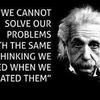The year was 2005. The place was the Supreme Court for the Brand-X case. Cable won. Internet was deemed an information service that did not have to be shared. Only UNE's from LECs had to be shared. [UNE-P was given a death sentence in a 2003 ruling.] Any fiber circuit did NOT need to be shared or wholesaled. Cable didn't have to share with competitors at all. And then the race was on.
Telcos spent billions on both fiber and TV services. [Verizon reportedly spent $23 billion rolling out FiOS since 2004, some of it from rate hikes, some from government subsidies.] Unfortunately, by the time telco TV, like Windstream's Kinetic, is widely available cord cutting is accelerating.
From DSLR, "Telco TV and satellite TV providers saw record pay TV subscriber losses last quarter, according to the latest analysis by Leichtman Research. According to Leichtman, the pay TV sector lost about 210,000 subscribers last quarter, though this figure is dramatically lower than the 430,000 subscriber net loss stated by Wall Street research firms like SNL Kagan. While traditional cable providers "only" saw a net loss of 90,000 video subscribers last quarter, the telcos were particularly hard hit, losing 375,000 video subscribers last quarter -- compared 45,000 during the same quarter last year."
In the broadband realm, "Cable companies added a net of 775,000 broadband subscribers last quarter, compared to a net loss of 150,000 broadband subscribers during the same period," writes DSLR. [see chart here]
For consumers, it is all about the Internet and smartphones, according to Pew.
Telcos didn't want to get into the DSL game. Mainly to protect a highly profitable T1 business. The same way they threw obstacles at Google Fiber, the LECs threw obstacles at the newly minted DLECs - NorthPoint, Rhythms and Covad. Sure, some of it was incompetence on the part of the DLECs and GF, but the hurdles kept tripping them up. After they all filed bankruptcy, the RBOCs decided to get into the DSL retil game, to the chagrin of the independent ISP, who was finally making money on DSL. Undercut by the vendor, many ISPs failed or limped along for years, which affected many small businesses as the ISP was usually the local computer expert and Internet Provider. This was something that the LEC could not provide: personal service to the small business. To this day, the Duopoly can only supply commodity service with almost non-existent support. As they have gotten bigger and bigger to take advantage of scale, the support to the small business has suffered.
Small business is 99% of the businesses in America. Yet every provider wants to go up market.
There are almost 28 million small businesses in the US and over 22 million are self employed with no additional payroll or employees (these are called nonemployers). Over 50% of the working population (120 million individuals) works in a small business. But it is under-served by the Duopoly.
From the FCC's 2016 Broadband Report:
- 10 percent of all Americans (34 million people) lack access to 25 Mbps/3 Mbps service.
- 39 percent of rural Americans (23 million people) lack access to 25 Mbps/3 Mbps.
- Americans living in rural and urban areas adopt broadband at similar rates where 25 Mbps/ 3 Mbps service is available, 28 percent in rural areas and 30 percent in urban areas.
- While an increasing number of schools have high-speed connections, approximately 41 percent of schools, representing 47 percent of the nation's students, lack the connectivity to meet the Commission's short-term goal of 100 Mbps per 1,000 students/staff.
- "At slower speeds, 6 percent of Americans lack access to fixed terrestrial service at 10Mbps/1Mbps and 5 percent lack access to such services at 4Mbps/1Mbps," the FCC report said." [source]
- "Nearly 20 percent of U.S. adults don't use the Internet. That means that roughly 60 million people, many of them elderly, poor and minorities, have no access to technology the rest of us increasingly consider mission-critical to modern life." [source]
Think about those numbers. VZ spent $23B. Other telcos spent billions. The FCC donated billions in BTOP, BIP, ARRA, CAF, CAF II and USF funds to the effort to build out broadband across America. Private companies (PCOs, ISPs, WISPs and CLECs) have invested hundreds of millions more. Cable dropped bilions. Yet not everyone has good Internet????Or a choice of more than 1 ISP?
I have to wonder where this goes. The telcos spent billions to get triple-play just as that bundle becomes undesirable. They now have to build out fiber to stop losing broadband subscribers, so more hundreds of millions. At a time when their debt is High - and the pies for TV, broadband and voice are stagnant. Even cellular has peaked.
They are all chasing Enterprise, which I imagine means 500+ employees. There are only 30K businesses in the US with more than 500 employees. So Comcast, Charter, AT&T, Verizon, CenturyLink and Windstream are fighting desperately over the same 30,000 businesses and government contracts. With VZ acquiring XO (approved today); C-Link acquiring Level3 (ugh); and WIND Buying EarthLink, that leaves Zayo as the sole big indie.
What happened? Bad short-term decisions that cost jobs, revenue losses and more CAPEX spending than if they had just done it from the beginning. To still see announcements from the telcos about Gigabit deployments in select cities is just plain sad. The monopolies that were the Bell companies re-constituted but lost their edge. It's like they don't know how to compete at all. They just lean on their brand and hope for the best.
EoC wasn't widely enough deployed and sold. Yet everyone is banking on SD-WAN, which will likely just make SLAs crumble.
Small business has suffered from this mess -- and further with the mega-mergers and consolidation. Small businesses - all businesses - rely on telecommunications to do business. The Internet is vital to our economy. Let's hope we don't stifle it anymore.













